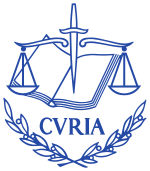EU's Top Court Asked to Rule on Industry's CO2 Permit Challenges
The Dutch national court has asked the European Court of Justice (ECJ) to rule on the legal challenges filed by heavy industry over how many free emissions permits they are due to receive through to 2020 under the EU's carbon market.
The Dutch Council of State on Wednesday requested the ECJ, Europe's highest court, make a preliminary ruling on whether the European Commission had correctly calculated a reduction in the number of permits - subsidies worth billions of euros - that would be earmarked for industrial firms.
An ECJ ruling is expected to provide guidance for courts in other EU member states that are hearing similar cases.
According to a document on the Dutch court's website, legal challenges have been filed by at least 20 companies including the Dutch subsidiaries of oil major ExxonMobil, steelmaker Tata Steel, and chemical firms Akzo Nobel (AKU.F) and Dow.
The ECJ is expected to take between 12 and 18 months to answer six questions posed by the Dutch court, after which the Netherlands will be able to make a final ruling on the matter within approximately six months, a spokeswoman from the Dutch Council of State said.
The challenges, filed late last year, stem from how the Commission calculated the number of free greenhouse gas permits to be awarded under the EU Emissions Trading System.
In the scheme's current trading phase, which runs from 2013 to 2020, the majority of allowances are to sold via government auctions, with most of the remainder given for free to industry to help shield them from higher energy costs and protect them from foreign competition.
To keep the bloc's overall emissions under legal limits, the Commission last year cut heavy industry's quota to 2020 by 12 percent below the level requested, or by roughly 900 million units.
The Commission said 43 percent of the total number of permits issued in the market, or around 6.6 billion, would be earmarked for industrial manufacturers.
But according to legal advice prepared for several firms, emissions generated from producing power by capturing heat (CHP) and burning waste gas were incorrectly treated by the Commission as attributable to the power sector, which must pay for permits.
As a result, the related units are to be auctioned rather than given to industry, removing subsidies for manufacturers that source energy through those two activities.
Trade groups said that assigning CHP and waste gas emissions to the power sector had distorted the bloc-wide reduction in allowances, or "correction factor" in EU jargon, and that the problem had been further compounded by a lack of transparency in how the figures were calculated by the Commission.
Vianney Schyns, a legal expert advising a consortium of chemical firms on the matter, in December estimated that EU industry had been "unjustifiably under-allocated 168 million permits in 2013 and around 800 million permits up to 2020".
The allowances are valued at nearly 5 billion euros, based on average EU carbon future prices of around 6.10 euros between now and 2020.
(By Michael Szabo, Reporting by Michael Szabo in London; Editing by David Evans)










